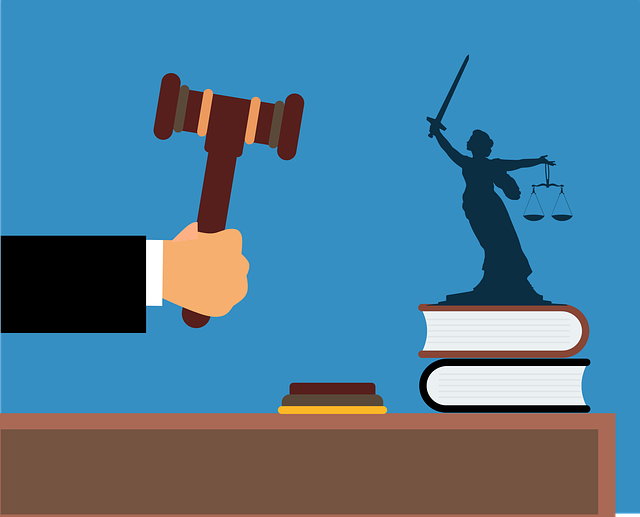Understanding the Differences Between Civil and Criminal Burden of Proof is crucial in litigation. In civil cases, plaintiffs must prove their claims by a preponderance of evidence, while criminal cases require prosecutors to establish guilt beyond a reasonable doubt. Litigation Support Services play a vital role in both types of cases, aiding parties in gathering, organizing, and presenting evidence according to these differing standards. In criminal prosecutions, these services are especially critical for ensuring fair trials and achieving just outcomes in complex scenarios like white-collar crimes.
Litigation Support Services play a vital role in modern legal proceedings, especially with the evolving complexities of cases. This article delves into two critical aspects of legal aid: understanding the distinct Differences Between Civil and Criminal Burden of Proof and exploring the contributions of litigation support professionals. In civil disputes, these services facilitate evidence management and analysis, while in criminal prosecutions, they ensure a fair trial by aiding in investigation, testimony, and presenting a comprehensive case.
- Understanding the Burden of Proof: A Key Distinction Between Civil and Criminal Cases
- The Role of Litigation Support Services in Civil Disputes
- Criminal Prosecutions: How Litigation Support Professionals Contribute to a Fair Trial
Understanding the Burden of Proof: A Key Distinction Between Civil and Criminal Cases
In litigation, understanding the burden of proof is pivotal, especially with stark differences between civil and criminal cases. The burden of proof refers to the responsibility of presenting sufficient evidence to convince a fact-finder—be it a judge or jury—of a claim’s truth. In civil cases, this burden typically lies with the plaintiff, who must prove their case “by a preponderance of the evidence.” This means that they need to convince the court that their version of events is more likely than not to be true. For his clients, this often involves presenting documents, witness testimonies, and expert opinions to support their claims.
In contrast, criminal cases have a higher standard, requiring prosecutors to prove guilt “beyond a reasonable doubt.” This distinction is crucial as it means that in criminal proceedings, the state carries the burden of providing irrefutable evidence that the defendant committed the crime. Across the country, this difference plays out significantly in jury trials, where the lower civil standard might lead to more favorable outcomes for plaintiffs, while the stringent criminal standard ensures a higher level of certainty before someone is convicted of a crime.
The Role of Litigation Support Services in Civil Disputes
Litigation Support Services play a pivotal role in civil disputes by providing critical assistance that can significantly impact the outcome of cases involving complex issues and high-stakes claims. Unlike criminal proceedings, where the burden of proof is beyond a reasonable doubt, civil litigation demands a lower standard, typically requiring evidence to be more persuasive and convincing. This difference is crucial as it means proving a case in civil court often involves demonstrating a fact or issue is more likely than not, rather than absolutely certain.
These services aid plaintiffs and defendants alike in navigating the intricate web of legal procedures. They include strategies for gathering, organizing, and presenting evidence effectively to support or challenge claims. In cases involving white-collar crimes and economic offenses, where winning challenging defense verdicts can be particularly difficult, expert litigation support is invaluable. By employing sophisticated analytical tools and methodologies, these services help in avoiding indictment and crafting compelling arguments that can lead to favorable outcomes, ensuring justice is served without undue burden on either party.
Criminal Prosecutions: How Litigation Support Professionals Contribute to a Fair Trial
In criminal prosecutions, litigation support professionals play a pivotal role in ensuring a fair trial. Their expertise lies in managing complex evidentiary landscapes, where the differences between civil and criminal burden of proof are paramount. In criminal cases, the standard is often higher, requiring prosecution to prove guilt beyond a reasonable doubt—a stricter benchmark than the preponderance of evidence used in civil litigation.
These professionals aid in uncovering and presenting critical evidence, ensuring its admissibility, and helping attorneys construct compelling arguments. Their work includes meticulous document review, data analysis, and expert witness coordination. By employing advanced technologies and strategies, they contribute to winning challenging defense verdicts while upholding the integrity of the justice system. This is particularly relevant in the realm of white-collar and economic crimes, which often involve intricate financial transactions and require a nuanced understanding of both legal and financial aspects. Even in philanthropic and political communities, where accusations can be politically charged, litigation support services help maintain fairness by providing unbiased analysis and evidence management.
Litigation Support Services play an indispensable role in navigating the complexities of civil disputes and criminal prosecutions. By understanding the nuanced differences, such as the burden of proof, these professionals ensure fair trials and efficient justice. In civil cases, their expertise aids in presenting evidence convincingly, while in criminal matters, they contribute to a balanced legal process. Ultimately, leveraging Litigation Support Services enhances the integrity of legal proceedings, underscoring the importance of specialized assistance in both civil and criminal domains.






